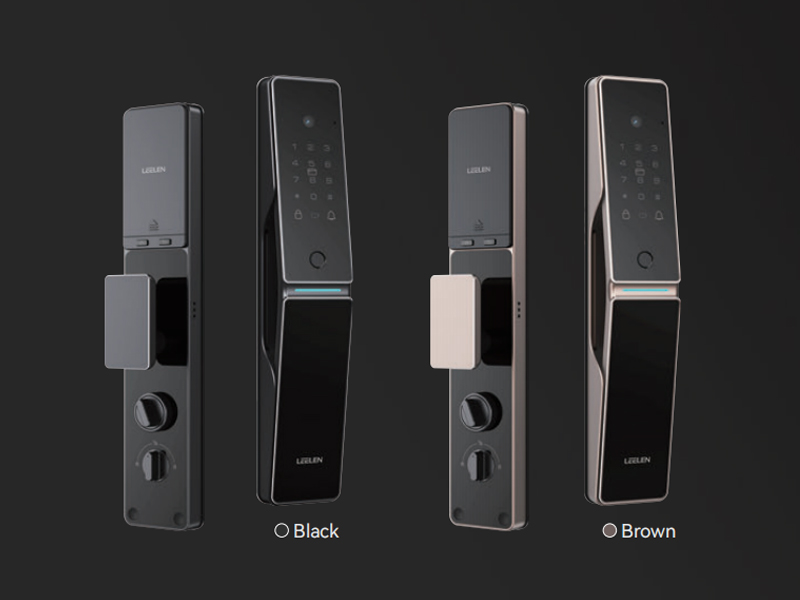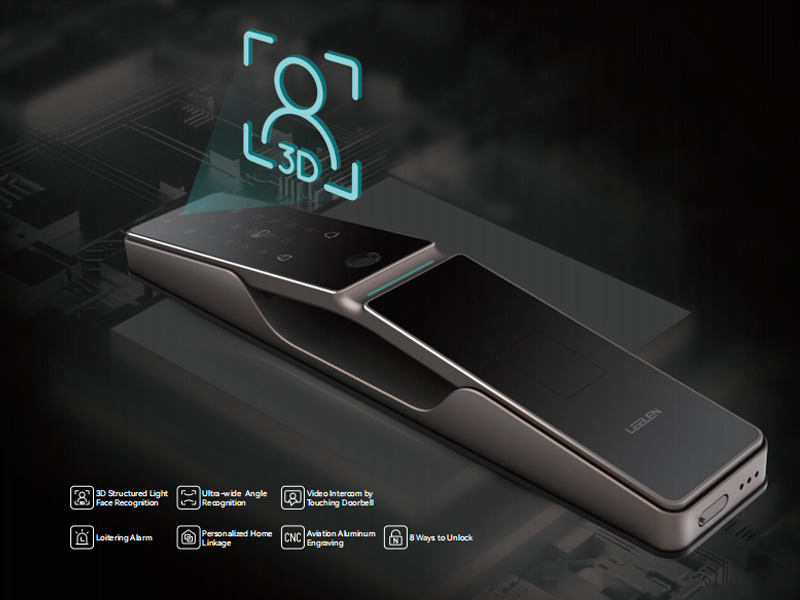¿Qué es una cerradura inteligente para el hogar?
Asegúrese de que la cerradura ofrezcaalertas de manipulación, protocolos de cifrado y autenticación multifactorPara mantener su hogar seguro.Conclusión: Un futuro brillante para las cerraduras inteligentesA medida que los hogares urbanos adoptan cada vez más tecnologías de hogares inteligentes, el mercado de cerraduras inteligentes experimentará un crecimiento sin precedentes. Estas cerraduras ya no son solo un lujo, sino una
Una necesidad para los propietarios de viviendas modernas
En busca de comodidad y mayor seguridad. Con el apoyo gubernamental a hogares más inteligentes y energéticamente eficientes y una creciente variedad de productos innovadores en el mercado, las cerraduras inteligentes se convertirán en una característica estándar en los hogares de todo el mundo.Ya sea que estés buscando
Aumente la seguridad, mejore la comodidad o integre con la configuración de su hogar inteligente
Las cerraduras inteligentes son el futuro de la gestión del acceso al hogar. A medida que el mercado avanza haciaUSD 22.060 millones para 2033
Ahora es el momento de que los propietarios de viviendas adopten la próxima generación de tecnología para hogares inteligentes.PIN codes, biometric fingerprint readers, and mobile app access. These keyless entry systems not only offer greater convenience but also reduce the risk of unauthorized access. With Bluetooth and Wi-Fi-enabled smart locks gaining popularity, consumers benefit from remote control capabilities, such as locking and unlocking doors from anywhere.
3.The Rise of Voice-Controlled Smart Devices:
Integration with Amazon Alexa, Google Assistant, and Apple HomeKit has become a critical feature for smart locks. Homeowners now expect these devices to work with their existing virtual assistants, allowing voice commands to manage locks and receive real-time notifications. This cross-compatibility provides a seamless experience, making smart locks more appealing to tech-savvy consumers.
4.Government Initiatives and Enhanced Security Needs:
Government programs promoting energy efficiency and improved home security further drive the smart lock market. As security threats become more sophisticated, individuals increasingly seek advanced solutions that offer convenience and protection, including access logs, tamper alarms, and geofencing capabilities.
Key Features Homeowners Look for in Smart Locks
Smart locks come with a wide array of features to enhance convenience, security, and ease of use:
· Remote Locking/Unlocking: Lock and unlock doors from anywhere using a mobile app.
· Access Logs: Monitor who enters and exits the home and when.
· Shareable Electronic Keys: Provide temporary or permanent access to family and friends.
· Geofencing: Automatically lock or unlock the door when the user is near the house.
· Smartphone Alerts: Receive notifications when someone opens the door.
· Tamper Alarms: Alert users if someone tries to force entry.
· Third-Party Integration: Seamless operation with security systems, lighting controls, and other smart devices.
As Misha Kollontai, a test engineer for Consumer Reports, explains: “Smart locks can add an invaluable level of peace of mind. Depending on the model, you can view the status of your lock from anywhere and track who opens your door and when.”
Trends Shaping the U.S. Smart Lock Market
In the United States, Bluetooth- and Wi-Fi-enabled smart locks are gaining significant traction. These devices provide key advantages, such as:
· Lower costs compared to more complex systems.
· Improved battery life, reducing the need for frequent replacements.
· Better integration with smart home systems, offering a more cohesive user experience.
· Remote access capabilities, allowing homeowners to control locks even when they’re away.
Smart Locks in Residential Applications: A Growing Segment
The residential sector is expected to dominate the smart lock market. With increasing concerns about home security, homeowners are turning to advanced smart locks for protection and convenience. This segment is set to expand significantly as consumers prioritize ease of use and features like remote access, biometric authentication, and integration with smart home assistants.
Brands such as August Homes and Kwikset lead the market by offering reliable and versatile smart locks, while innovative products like Knocki capture consumer interest with unique features. These companies are meeting the growing demand for smarter, more intuitive home security solutions.
What to Consider Before Buying a Smart Lock
When choosing a smart lock, it’s important to evaluate how well it integrates with your existing smart home setup. Here are key considerations:
1. Compatibility: Ensure the smart lock works with your preferred platform—whether that’s Amazon Alexa, Google Assistant, or Apple HomeKit.
2. Automation: Look for locks that support automated routines, such as locking the door at bedtime or unlocking when you arrive home.
3. Battery Life: Wi-Fi locks offer more features but may need frequent battery replacements compared to Bluetooth models.
4. Security Features: Make sure the lock offers tamper alerts, encryption protocols, and multi-factor authentication to keep your home secure.
Conclusion: A Bright Future for Smart Locks
As urban households increasingly adopt smart home technologies, the smart lock market is set to experience unprecedented growth. These locks are no longer just a luxury but a necessity for modern homeowners seeking both convenience and enhanced security. With government support for smarter, energy-efficient homes and a growing array of innovative products on the market, smart locks will become a standard feature in homes worldwide.
Whether you’re looking to boost security, enhance convenience, or integrate with your smart home setup, smart locks are the future of home access management. As the market surges toward USD 22.06 billion by 2033, now is the time for homeowners to embrace the next generation of smart home technology.


